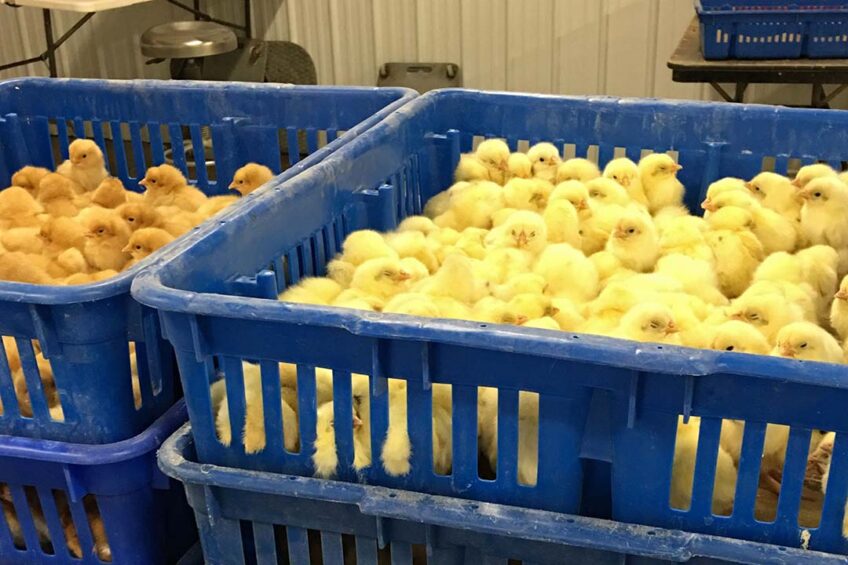UK government urged to ban male chick culling

Calls for the UK government to offer financial incentives to producers for the introduction of in-ovo sexing technology have been made by its Animal Welfare Committee as part of recommendations suggesting that it should ban male chick culling.
The Animal Welfare Committee publication ‘Opinion on chick culling alternatives’ followed detailed discussions with a wide variety of industry stakeholder, including in-ovo sexing technology producers, hatcheries, egg producers and poultry trade organisations.
It looked at the use of in-ovo sexing technologies to determine the sex of laying hen embryos prior to hatch. It also considered whether there is any evidence, on welfare grounds, to support the adoption of in-ovo sexing to replace the routine culling of make chicks post-hatch. The paper also provided an opinion on potential risk associated with the removal of chicks as another food source for other animals and made wider recommendations aimed at improving the welfare of newly-hatched poultry.
Capacity for sentience at day 13
Following current scientific evidence, the committee recommended that embryos develop the capacity for sentience at day 13 of incubation at the earliest, meaning that in-ovo sexing should happen at day 12 or earlier. This brings the committee’s recommendations in line with current law in Germany but not necessarily with other European countries.
It also found that in-ovo sexing currently adds less than 1 penny per table egg of additional production cost in commercial European hatcheries.
Further recommendations
Produced last August but only published in mid-March, the report includes a range of other recommendations to the government:
- Government should make the routine culling of newly-hatched chicks and turkey poults, due to their sex, illegal as soon as reliable, accurate methods for sexing eggs prior to hatch are available to be implemented in hatcheries.
- When this happens, the import of eggs and of female chicks and poults from production systems in which there is routine culling should be made illegal.
- For eggs, meat chickens and turkeys, any future government welfare labelling scheme should consider whether chicks or poults are routinely culled due to their sex.
- Until then, governments should offer financial support for the introduction and use of egg sexing technologies, before or after the start of incubation, that have no significant negative welfare impacts. Technologies currently available for use are allantoic fluid analyses, hyperspectral imaging and magnetic resonance imaging. These techniques should preferably be used no later than day 12 of incubation.
- In hatcheries, chicks, turkey poults and ducklings should be provided with a source of hydration.
- Governments should support the development and use of dual-purpose breeds, such as via regenerative and agroecological farming programmes, especially in line with the Climate Change Committee’s recommendation on a reduction in meat consumption to achieve the government’s net zero emissions target.
- Retailers should label the eggs and meat from dual-purpose flocks, in order to enable consumer choice.
- The only legally permitted gas method of stunning and killing newly-hatched poultry in large numbers should be the use of inert gas – carbon dioxide should be prohibited.
- Governments should update the Codes of Recommendations for Livestock: Turkeys (1987) and Ducks (1987).
The committee added that “the routine killing of male chicks and turkey poultry forms part of a ‘legacy system’ that would not be considered ethically acceptable if it did not already exist.”
Robert Yaman, CEO of Innovate Animal Ag, said: “We are glad to see that the Committee has recognised the impressive scale up and commercial readiness that in-ovo sexing has achieved over the last few years. We also agree with the Committee’s recommendation that governments should offer financial support for the introduction and use of in-ovo sexing.
“Whether or not chick culling is banned in a particular country, companies that invest in welfare-improving technologies like in-ovo sexing are creating a clear public good, and they deserve to be compensated for it.”
Join 31,000+ subscribers
Subscribe to our newsletter to stay updated about all the need-to-know content in the poultry sector, three times a week. Beheer
Beheer











 WP Admin
WP Admin  Bewerk bericht
Bewerk bericht